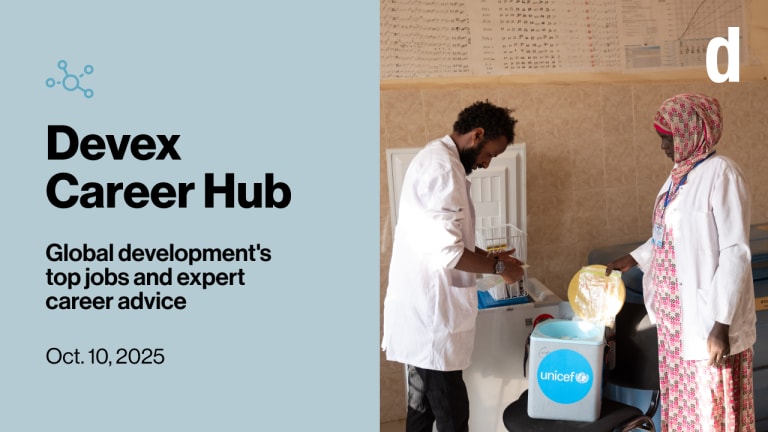Devex recently asked our network of international development recruiters to make their predictions for upcoming career trends. More than 100 recruiters participated in the “Devex Career Trends in 2015” survey, providing insight into where their organizations anticipate the most job opportunities will be and what kinds of global development professionals will be in demand in the coming year.
Consulting firms made up nearly half of respondents, followed by international NGOs, international organizations and local NGOs. Respondents’ organizations were based in more than 25 different countries, from Colombia to Germany, though the majority are headquartered in the United States.
Some of the findings confirmed trends we frequently discuss — like the fact that organizations are increasingly seeking local talent to staff their projects. But a few surprising trends emerged, too.
This article is exclusively for Career Account members.
Unlock this article now with a 15-day free trial of a Devex Career Account. With a Career Account subscription you will get:
- Full access to our jobs board, including over 1,000 exclusive jobs
- Your Devex profile highlighted in recruiter search results
- Connections to recruiters and industry experts through online and live Devex events
Read more news and career tips for aid workers:
● A risky business: Aid workers in danger
● What to know before you go to a conflict zone
Search for articles
Most Read
- 1
- 2
- 3
- 4
- 5








